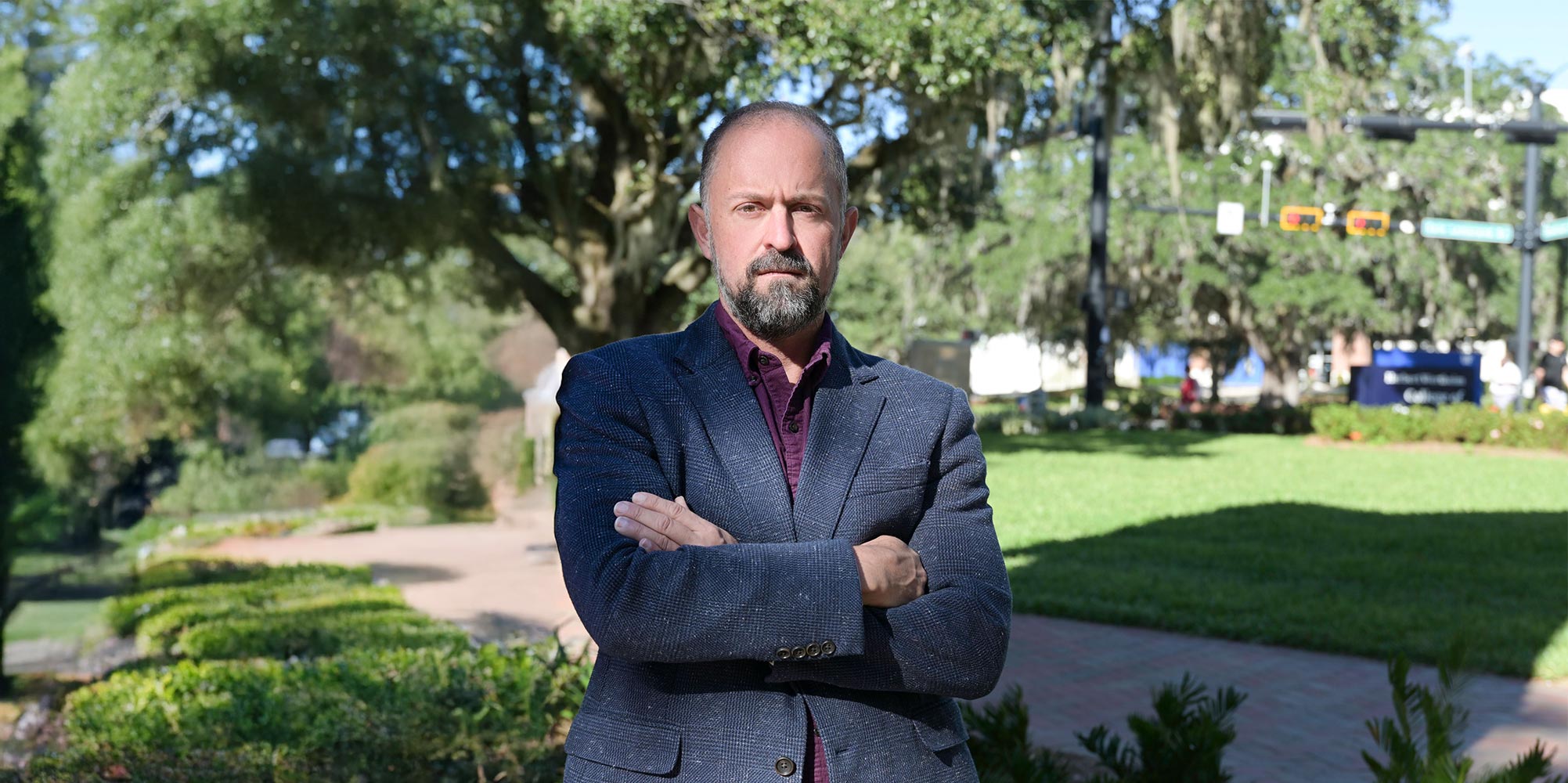University of Florida Associate Professor Kyle C. Hartig, Ph.D., has been named to the American Nuclear Society’s (ANS) Nuclear News 40 Under 40 list. This recognition celebrates innovative young professionals advancing the field of nuclear science and engineering.
“Professor Hartig’s work is transforming nuclear security and nonproliferation,” said Michael Tonks, Ph.D., interim department chair of the Department of Materials Science and Engineering. “He exemplifies innovation and leadership in the field.”
“I’m deeply grateful for the recognition and for the outstanding colleagues, mentors and students who make this work possible,” Hartig said.
Hartig, an associate professor in UF’s Nuclear Engineering program, leads a research group focused on advancing radiation-detection technologies and laser-driven diagnostics for nuclear security and nonproliferation. These areas hold promise for advances in civilian energy use and global security.
“I believe the tools we’re developing will help make nuclear energy and nuclear security more robust, adaptable and trusted worldwide. By pushing the boundaries of detection science, we can support both the safe expansion of nuclear energy and stronger global nonproliferation efforts,” said Hartig.
Since joining UF, he has been instrumental in developing cross-disciplinary research programs that connect fundamental science with real-world applications. His lab emphasizes translational research and strong mentorship, training the next generation of nuclear scientists and engineers through hands-on experience.
“At UF, we’re building a unique ecosystem that blends fundamental science with applied innovation, linking campus strengths with national labs, industry partners and international collaborators. My lab contributes by training the next generation of nuclear scientists and engineers while tackling pressing challenges in nuclear security and diagnostics, from novel detection concepts to fieldable systems and analysis methods. Together, this work strengthens U.S. leadership in nuclear research and national security, supports global nonproliferation and safety goals, and builds durable pipelines of talent and technology for the community.”
Hartig is especially passionate about the intersection of laser technologies, nuclear diagnostics and nonproliferation. He credits mentorship as a cornerstone of his career and success.
To those just entering the field, Hartig offers this advice: “Stay curious, be adaptable and don’t be afraid to work across disciplines. Many of the most exciting breakthroughs in nuclear science happen at the intersections with other fields—lasers, materials, data science and beyond.”

